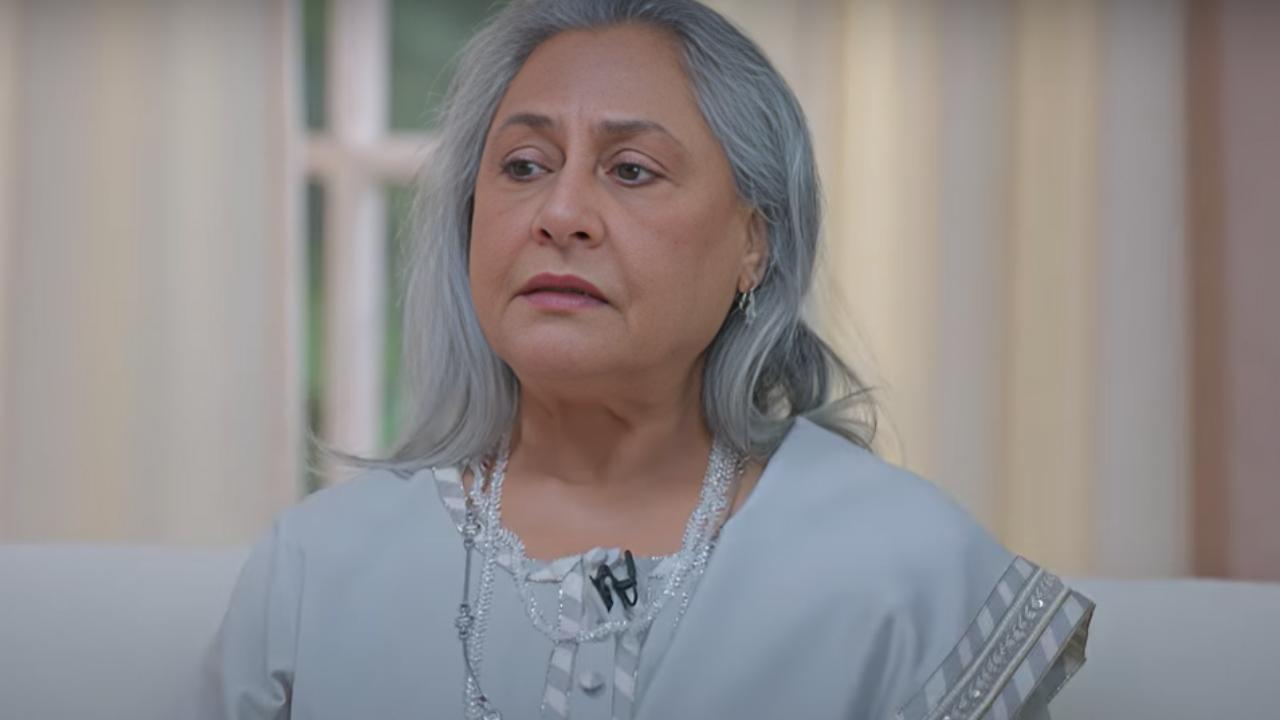On Navya Naveli Nanda's vodcast "What The Hell Navya 2," titled 'Macho Myths and Modern Men, Jaya Bachchan gave her take on women not allowing men to pay on dates

Jaya Bachchan on Navya Naveli Nanda's vodcast (Pic/Screengrab from the video)
The most recent episode of Navya Naveli Nanda's vodcast "What The Hell Navya 2," titled 'Macho Myths and Modern Men,' was released on Thursday. In the episode, Navya had a conversation with her mother Shweta Bachchan, brother Agastya, and grandmother Jaya Bachchan, focusing on the topics of men and toxicity.
ADVERTISEMENT
Jaya Bachchan says some women are 'stupid'
So why did Jaya Bachchan say some women are 'stupid'? During the discussion, Navya Naveli Nanda brought up the idea of women feeling independent and wanting to pay for their own meals on dates. Jaya expressed a differing opinion by calling those women 'stupid' for doing so. Navya was explaining how, in the context of feminism and women feeling more empowered, many women prefer to be independent in various aspects of their lives. Navya explained, “For example, today, if you take a girl out on a date and you offer to pay, some people get offended by that. Because women now feel they’re equally…” But before she could complete her sentence, Jaya chimed in, saying, “How stupid of those women. You should let the men pay.”
“No, but I’m saying these are things that happen. That ‘Oh we can open the door for ourselves. You don’t need to open it for us.’ So, where do you draw that line? Are you opening doors for people? Have you ever been in a situation where you’ve been chivalrous but a woman has said, I can do that myself?” Jaya replied again, “Basically what they’re trying to say is – don’t be chivalrous. How stupid is that?” Navya continued.
Agastya explained the difference between chivalry and toxicity and delved into why women feel that way, “As long as you’re doing it to be polite, and not show ‘I’m the man,’ you can’t go wrong. If you’re opening the door not to be like, ‘i’m the one opening the door’ instead you’re doing it because ‘I want to help you,’ it’s never gonna come across the wrong way.”
“If you want to say, I’d love to pay for this meal, it’s not going to come across, the wrong way because you’re doing it to do something kind. Not like ‘I’m the provider, so I’ll pay.’ It’s the intent.” He concluded.
 Subscribe today by clicking the link and stay updated with the latest news!" Click here!
Subscribe today by clicking the link and stay updated with the latest news!" Click here!







